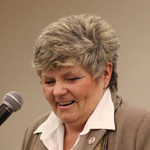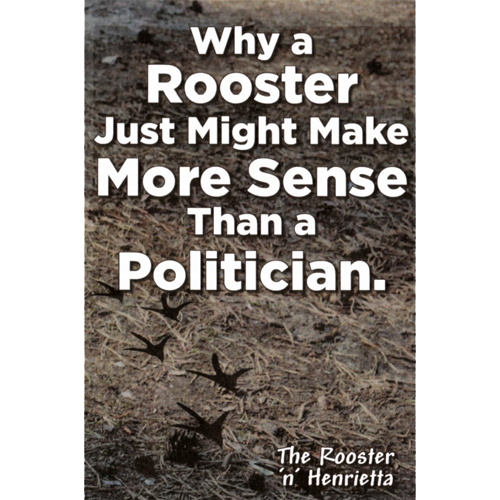Will parents and government allow the Ontario Educational System to continue to fail society? By Elizabeth Marshall
- 2020-02-01
- By admin
- Posted in Latest News

Elizabeth Marshall
Quite the poignant question isn’t it? It is based on years of research. Unknown to most people, in Ontario, our education system has been undermined since the late 1960’s when there was a report done on education. In that report is a blaring statement of which everyone should be very concerned. This report states:
“At no time in our history have we had a better vantage point from which to view the role of Canadians in the affairs of man. Perhaps, too, no better opportunity has been offered to transcend the ordinary conditions of our free society and reach a new plateau of human commitment to the common good.” Living and Learning, The Report of the Provincial Committee on Aims and Objectives of Education in the Schools of Ontario, Department of Education, 1968” p. 9.
Since this report, the education system, in Ontario, has been failing society by producing children who (i) have this confused sense of entitlement, and (ii) have a lacking education in the fundamentals, of which the previous generations made their successes from – that being the goal of becoming something better to benefit the individual as well as society.
First, we need to understand what “the common good” actually is, from “STALIN AND MAO: MARXISM TWO WAYS”: http://www.kentlaw.edu/perritt/courses/seminar/white-final-Seminar%20Paper.pdf
“Stalin …, yet there was always a looming presence of corruption and elite privilege that created resentment in the average citizens who recognized the contradiction in the inequality and exploitation, and as a result, were often unwilling to follow party orders to work harder for the common good.”
“… Mao followed Stalin’s social and economic development principles;… Mao pushed selfless dedication to the common good and ideal social behavior, often expressed in simple maxims.”
These are statements in reference to the Hegelian philosophy. Karl Marx followed what was referred to as the Hegelian “Dialectic”[1] which is merely a $50.00 term for a “discussion.” The problem with the Hegelian philosophy is that it removes the individual rights of the person/people and replaces these rights or gives control of these rights over to the bureaucrats/legislators. It also is a philosophy that makes the state supreme over the people instead of the people being supreme over the state.
One of the authors, of the 1968 report on education also, subscribed to the Hegelian philosophy, ergo, his statement of support for the “common good,” removing the individual thought and processes “to transcend the ordinary conditions of our free society,” replacing the ambition, drive and soul of the individual to follow their dreams of success and, indirectly, their societal obligations. This includes those who were successful, making the decision, to be charitable to those less fortunate.
Now it would seem our education system extorts, instead of relies of the individual good in every person, by forcing our children into a form of charitable service based in curriculum which some of these children, or the parents, can least afford. Doesn’t this create heartache for those who cannot afford to pay for toy drives, food drives, etc. And doesn’t this send a message to the average person that if you do not agree with these terms, that government has subscribed in their educational system, you are a failure to those “common good” expectations?
In 2004 there was a document created on how to govern Ontario. In this document, which to some is a self-fulfilling prophecy, that was created by university professors and the like, government was directed to make failed policies. Anyone who knows anything about history fully understands these initiatives.
“Moreover, Ontario will be required to make tough choices in order to realize the full potential of Ontarians and Ontario in a responsible, sustainable manner. For example, health expenditures have risen rapidly over the past 40 years and have become the dominant item in the provincial budget. Health care spending by the province has significantly overtaken education as a percentage of the budget…, and this trend will have to be confronted if the visions implicit in our report are to be realized. In a climate of scarce fiscal resources, the tough choices in health care and other areas will require that the province recognize the need to reduce or constrain expenditures in areas that do not further the human capital priorities we have highlighted.”[2]
Now we understand why the Liberal government removed funding from health care and transferred funding to the education system. But was government correct to undermine a successful education system with what they replaced it with? According to some – No.
For instance, the government between 2004 and 2018 continued to remove fundamentals in our educational system, replacing it with some very failed educational processes. Certainly, our children know larger $50.00 words – but can they do basic math or understand how to do simple things, like give change without some cash register doing it for them? Again, it would seem – No.
This has been brought on by wasted money going into specialty schools which have nothing to do with the public educational system. An example is the wasted funding for “Bill Crothers Secondary School.” To fully understand the waste, one must read the article provided. Suffice it to say a 15 year old who is a sports fan should not have public funding paying for his “sports” education over that of every other student, should they, or even over the health of others considering the funding removed from health care to fund these types of schools?
“A 15-year-old sports fan, Smith likes to talk about how fortunate he is to have had his application accepted to attend a brand new York Region high school, one entirely publicly funded to boot.
But this just isn’t any regular school.
Located on a former 31-acre Unionville golf course, Bill Crothers Secondary isn’t a traditional school, one that fits sports around academics.
At Crothers it’s the opposite, yet neither sports nor academics suffers.
“This place is a sports fantasy,” said Smith, who was among the first group of 250 students in Grades 9 and 10 that began classes last month at nearby Unionville Secondary because workers were still putting on the finishing touches.
“It’s so much easier to go to school when everyone is talking sports, playing sports and thinking about sports,” said Smith, who plays hockey and football.
He is among the first group able to use the four-level building that has three gyms, two turf fields, an eight-lane track, state-of-the-art training rooms, a walking trail and even a broadcasting booth.
The complex, which can accommodate 1,700 students, came with a price tag of $32 million.”
Then there is the process of our littlest and most impressionable. Why are we taking childhood from our children and turning them into a failed society? Children need to learn to understand basics like right from wrong, not whether a cat sitting on a mat has a larger meaning in life, do they?
“…Now, they know that kindergarten is deadly serious stuff. Recess time has been slashed, and every kindergartener’s schedule is crammed with activities designed to raise her Grade 3 test scores. A new “reading strategy” is spreading through Ontario’s classrooms like a virus. It’s not enough any more just to teach the little tykes to read. Now they must also be taught to be aware of their metacognitive processes.
“We’ve been told that we simply cannot read books for the sake of reading books,” says one exasperated teacher. “It’s incorrect to read a book straight through. Instead, the teacher is supposed to stop after every page and ask, ‘What do you think is going to happen next? How do you infer that?’ ”
Metacognition is what you do when you’re thinking about your thinking. (I think.) And teaching comprehension strategies is a good thing to do – with older students. But it may not too useful for kids who are still struggling to decipher “the cat sat on the mat.”
“We have to teach the terms ‘schema’ and ‘inference,’ even to kindergarten children,” says the beleaguered teacher. To ensure compliance, children are randomly removed from class by visiting experts and quizzed on their ability to use words such as “schema” and “inference.”
And yet those test scores are failing, aren’t they?
So, now we understand the failings in our educational system but what of this “entitlement” our children think they have – let alone their teachers think they have? This has been brought on by failed government giving into demands by unions and teachers, alike. This has been at the expense of the people’s health and for those involved in the demand for taxpayer funded post secondary education. There is nothing in the Canadian constitution which establishes that right – so it isn’t a right for anyone to have the tax-payers foot the bill for their university or college diploma.
Our parents and grandparents were the best of all societies. They had a grade eight education and yet they were wise beyond their years. It is only those who have this self-fulfilling prophecy who want more and more placed on the tax-payers of this province and anyone who cannot make a good living without post secondary should be placing the blame where it actually belongs – on the professors, the teachers and those in government who make the demands for post secondary.
Being from the halls of a university/college does not make you any more intelligent – it merely makes you less likely to obtain your life’s goals – to find employment in your field of studies because everyone else is also taking the same course. Welcome to the “brave new world: metacognition for tiny tots,” and say good-bye to reality in education.
Will parents and government allow the Ontario Educational System to continue to fail society?
https://www.macleans.ca/news/canada/why-are-schools-brainwashing-our-children/
Elizabeth F. Marshall,
Non-Partisan Advocate
Director of Research Ontario Landowners Association
Author – “Property Rights 101: An Introduction”
Board Member/Secretary – Canadian Justice Review Board
Legal Research – Green and Associates Law Offices, etc.,
Legislative Researcher – MPs, MPPs, Municipal Councillors,
President All Rights Research Ltd.,
I am not a lawyer and do not give legal advice. Any information relayed is for informational purposes only. Please contact a lawyer.
[1] Dialectic 1 : logic 1a(1) , 2. a : discussion and reasoning by dialogue as a method of intellectual investigation; specifically : the Socratic techniques of exposing false beliefs and eliciting truth , b : the Platonic investigation of the eternal ideas. 3 : the logic of fallacy. 4. a : the Hegelian process of change in which a concept or its realization passes over into and is preserved and fulfilled by its opposite; also : the critical investigation of this process, b (1) usually plural but singular or plural in construction : development through the stages of thesis, antithesis, and synthesis in accordance with the laws of dialectical materialism (2) : the investigation of this process (3) : the theoretical application of this process especially in the social sciences. 5. usually plural but singular or plural in construction , a : any systematic reasoning, exposition, or argument that juxtaposes opposed or contradictory ideas and usually seeks to resolve their conflict, b : an intellectual exchange of ideas. 6 : the dialectical tension or opposition between two interacting forces or elements. http://www.merriam-webster.com/dictionary/dialectic
[2] Investing in People Creating a Human Capital Society – Panel on Government, p. 3.
Search:
Categories
Archives
- April 2024
- January 2024
- December 2023
- November 2023
- August 2023
- July 2023
- June 2023
- May 2023
- April 2023
- March 2023
- February 2023
- January 2023
- December 2022
- November 2022
- October 2022
- September 2022
- August 2022
- July 2022
- June 2022
- May 2022
- April 2022
- March 2022
- February 2022
- January 2022
- December 2021
- November 2021
- October 2021
- September 2021
- August 2021
- July 2021
- June 2021
- May 2021
- April 2021
- March 2021
- February 2021
- January 2021
- December 2020
- November 2020
- October 2020
- September 2020
- August 2020
- July 2020
- June 2020
- May 2020
- April 2020
- March 2020
- February 2020
- January 2020
- December 2019
- November 2019
- October 2019
- September 2019
- August 2019
- July 2019
- June 2019
- May 2019
- April 2019
- March 2019
- February 2019
- January 2019
- December 2018
- November 2018
- October 2018
- September 2018
- August 2018
- July 2018
- June 2018
- May 2018
- April 2018
- March 2018
- February 2018
- January 2018
- December 2017
- November 2017
- October 2017
- September 2017
- August 2017
- July 2017
- June 2017
- May 2017
- April 2017
- March 2017
- February 2017
- January 2017
- December 2016
- November 2016
- October 2016
- September 2016
- August 2016
- July 2016
- June 2016
- May 2016
- April 2016
- March 2016
- February 2016
- January 2016
- December 2015
- November 2015
- October 2015
- September 2015
- August 2015
- July 2015
- June 2015
- May 2015
- April 2015
- March 2015
- February 2015
- January 2015
- December 2014
- November 2014
- October 2014
- September 2014
- August 2014
- July 2014
- June 2014
- May 2014
- April 2014
- March 2014
- February 2014
- January 2014
- December 2013
- November 2013
- October 2013
- September 2013
- August 2013
- June 2013
- April 2013
- October 2012
- May 2012
- September 2011



